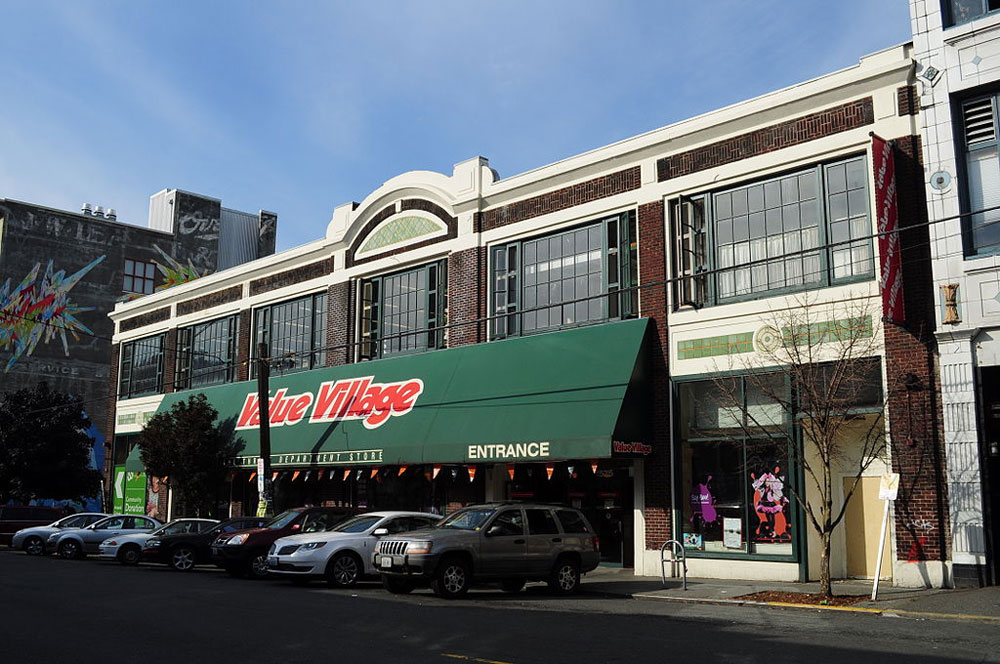
Katherine Khashimova Long of the Seattle Times reports that Roger Rogoff, a Washington State judge, has found that Value Village, part of the Savers brand, intentionally misled customers about its charitable giving. As NPQ’s Kevin Johnson noted earlier this year, the suit alleges that the firm has generated “more than $1 billion in annual revenue by hiding its for-profit status behind a veneer of charitable good will.”
As Johnson rightfully points out, this deception plays not only customers, but also their nonprofit partners. The firm has gone as far as to use nonprofit logos and partner names without permission and without donating to them.
Back when the suit was filed in 2017, Mike Rosenberg of the Seattle Times wrote that the stores do provide “nonprofits money, but not much: Big Brothers Big Sisters, for instance, got two cents for each piece of furniture, or two cents per pound for housewares, such as books and toys donated at the stores. (Those rates grew to 19 cents if the charity itself collected and delivered the items to Value Village stores).”
Nevertheless, the ruling is not a clear-cut victory for the state. All told, according to Francesca Lyman of Investigate West, the state prevailed on only three of seven claims. A full 95-page written ruling is expected to be released within the next two weeks. Rogoff, for instance, ruled that receipts that suggested the whole value of donated goods could be written off as tax deductions was not deceptive, even if nonprofits only received a small value of the goods donated.
Value Village has been in legal hot water for some time now. In 2014, the Washington State attorney general’s office forced Value Village to register as a commercial fundraiser. As Investigate West reported last week, this move was meant to create greater transparency over the company’s transactional relationship with their nonprofit partners. In 2015, in Minnesota, the firm settled similar claims out of court with the state of Minnesota, paying $1.8 million to six nonprofits as part of the settlement.
The firm has also been under pressure in the court of public opinion. Back in 2015, Lyman reported for NBC News that beginning in the early 2000s, the company transitioned from accepting bulk charitable donations from charities to accepting charitable donations directly from shoppers, while only giving a small percentage of what shoppers donated to their partners. This move proved highly lucrative, and the thrift store saw its profits more than double. The NBC News story also contains a map of Savers’ operations, which indicated that the firm had outlets in more than half of all US states.
Sign up for our free newsletters
Subscribe to NPQ's newsletters to have our top stories delivered directly to your inbox.
By signing up, you agree to our privacy policy and terms of use, and to receive messages from NPQ and our partners.
In response to these revelations, some charities have severed ties and have sought to create their own thrift stores or find other ways to more directly support their mission and services. Estimates of the percentage of donations given to Savers that made it into the hands of nonprofits are as low as four-to-six percent. As the director of Boston’s Big Brothers Big Sisters at the time said, “If you’re making a million, and we’re making $40,000, how is that helping charities?”
In his ruling, Judge Rogoff found that Value Village did mislead consumers about its charitable status and giving, upholding the state’s broadest claim, “that Value Village misled customers into believing the for-profit company itself was actually a charity.” The judge also ruled that the chain’s marketing misled customers into thinking their purchases were contributing directly to charities and that their donations would support the Spokane-based Rypien Foundation. (In reality, the company pays them a flat fee.)
However, Rogoff also praised Value Village for its donations to charities, which has the negative effect of furthering the idea that it is okay for corporate sponsors to poorly treat and profit off of charities as long as they give something in return, as if nonprofits should be grateful for whatever they are given, even if corporations benefit far more.
Value Village says it will wait for a written ruling before deciding whether or not to appeal. Their last store in Seattle will close on November 16th, likely a result of the legal issues.
This is a good reminder to check in with corporate sponsors and partners. In 2016, NPQ warned that some corporate sponsorships could hurt nonprofit branding and visibility, and Johnson’s earlier article about Value Village also warned nonprofit leaders and board members to be wary about these kind of partnerships.
As the fundraising landscape continues to change, and with recent concerns over declining charitable donations, it is more important than ever for nonprofits to remain vigilant and protect themselves against this kind of ill-willed behavior. Nonprofits deserve more than a five-percent return from any partnership.—Sarah Miller












